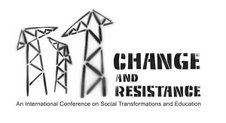Ewa Kurantowicz
Dolnośląska Szkoła Wyższa Edukacji TWP, Wrocław
1.What helps an individual in their striving to become empowered are, undoubtedly, transformations which take place in modern culture and society. On the one hand, processes of individualisation, globalisation and life experience in the risk society strengthen individualism, but, on the other, are not only an impulse to announce „the end of local communities”, but a strong impetus to change thinking on (local) community and its development. How is it possible to conduct a debate on communities (especially - local ones) among the accompanying debates on globalisation, detraditonalisation, deterritorialisation, individualisation, etc.?
2.A short history of local communities in southern and western Poland from the perspective of the history of places (taking into account „effects” of transformation in recent years on these territories). What arguments from the perspective of transformations of local communities are in favour of their marginalisation and self-exclusion and, in contrast, oppose such diagnoses?
3.Learning in local contexts: from local education to learning community. The concept of learning community undermines the exclusivity of traditional factors which are the reason for social inequalities and the access to learning. They are as follows: social class, owned property, sex, age. It introduces and reveals new factors connected with social stratification such as: time, place, space and finally local identity. To what extent does local community become a new form of social integration by the means of widely understood social learning?
4.Presentation of points 2 and 3 will be based on the results of my own empirical research and of other researchers of microterritories in this region.
Subscribe to:
Post Comments (Atom)

No comments:
Post a Comment